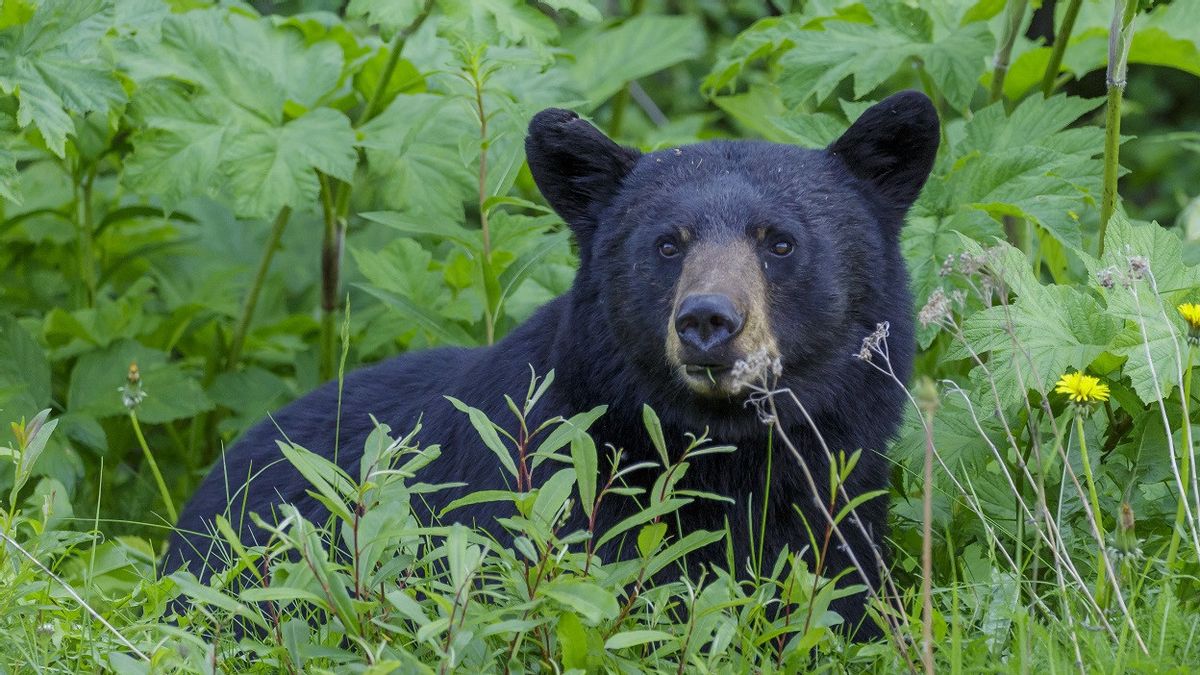The reunion, which should be happy and memorable, ended up being treated in hospital after eating black bear meat.
The incident occurred in the summer of 2022, according to a report in the latest edition of the Weekly Morbidity and Mortality Report from the United States Centers for Disease Control and Prevention (CDC), cited from CNN, May 27.
An unnamed extended family in the report gathered for a reunion in South Dakota, United States.
A family member who is also a hunter, brought some of the black bear he got in northern Saskatchewan in May 2022.
The huntman said hunting officers had recommended freezing the meat to kill existing parasites.
The meat had been frozen for 45 days before disbursing, before the family roasted it with several vegetables and served it as a kebab.
Meat at the family reunion was originally half cooked, but that's not what the chef wants, the CDC says. Instead, it was "it's difficult for family members to confirm the level of visual maturity" because the meat was dark. After some family members realized that the meat was not ripe enough, they put it back on the torch before it was served again.
After returning home, some people began to feel pain. The first disease was experienced by a 29-year-old man who had to be hospitalized twice for three weeks.
He reported symptoms of severe muscle pain and fever, as well as swelling in his eyes. Blood tests show he has eosinophilia, a condition involving too many eosinophiles in the body, which is a signal for a doctor a person may suffer from allergies, cancer, or parasites.
During their second visit to the hospital, the doctor just found out the man had eaten bear meat and suspected that he might suffer from triinellosis. Tests soon confirm that it is, with the test recommended for other family members.
Triminolosis can be light or severe infection. Symptoms can depend on the place the larvae migrate in the body. According to the CDC, mild infections may not have any real symptoms.
If the parasite enters the digestive tract, it can cause stomach pain, diarrhea, or vomiting. In muscles, it can cause fever, rash, conjunctivitis, and swollen face. Sometimes, there may be life-threatening symptoms including heart problems, problems with central nerve symptoms and respiratory problems.
Among the eight family members interviewed by investigators, six people had symptoms that matched the triinellosis. Four people have eaten bear meat and vegetables, but the other two only ate vegetables cooked with the meat. Three family members had to be hospitalized.
People hospitalized get treatment aimed at triinellosis with albendazole, an antiparasitic drug. Those who are not hospitalized only receive supportive treatment because their symptoms have disappeared before it is confirmed that they are infected. Everyone has recovered.
In the process of investigation, the CDC laboratory received samples of frozen bear meat and found Trichinella larvae. The hunt was advised to dispose of the remaining meat. The CDC also notified the Canadian Public Health Organization about the outbreak, as the bear originated in the country.
The CDC says it is important to cook hunted animal meat, especially wild game animals caught at north latitude, until perfect ripe.
Since Trichinella contaminated meat can contaminate other foods, raw meat must be stored and prepared separately from other foods.
The CDC also recommends that government agencies and private groups that organize or supervise hunting should educate hunters about this risk and how to protect themselves.
SEE ALSO:
It is known, freezing can kill some of the parasites commonly found in black bears, but according to the World Animal Health Organization, some species are frozen-resistant.
Bears and other wildlife including wild boars, wolves and squirrels are often exposed to trichinellosis, a serious illness caused by parasitic wristworms from the Trichinella genus, but they often look very healthy. When slaughtering meat, it will be difficult to know if the meat is contaminated because there are few signs of a parasite.
Many wildlife experts tell bear hunters to think all bear meat is infected, and the CDC recommends thoroughly cooking meat to a minimum internal temperature of 165 degrees Fahrenheit to kill parasites. Experts say infiltration, cultivation, drying, and heating with the microwave do not always kill parasites.
The English, Chinese, Japanese, Arabic, and French versions are automatically generated by the AI. So there may still be inaccuracies in translating, please always see Indonesian as our main language. (system supported by DigitalSiber.id)


















